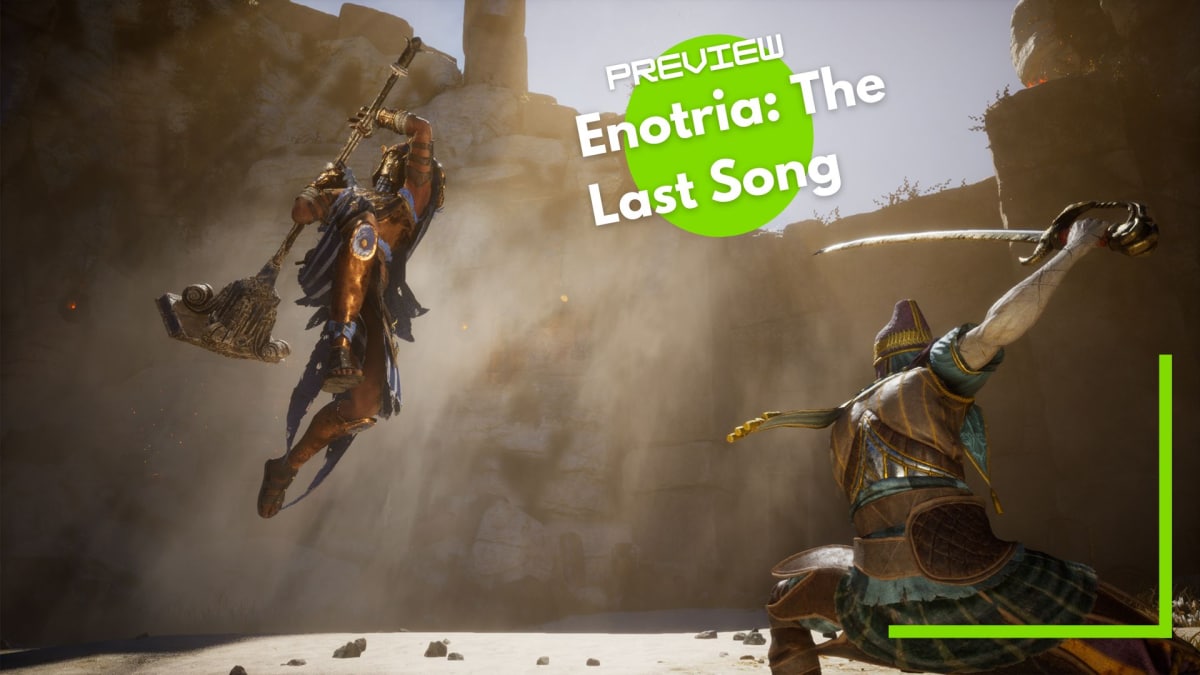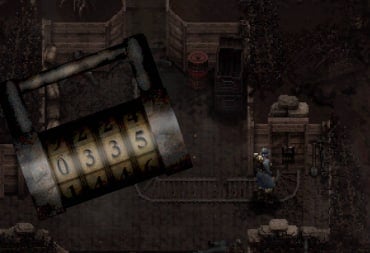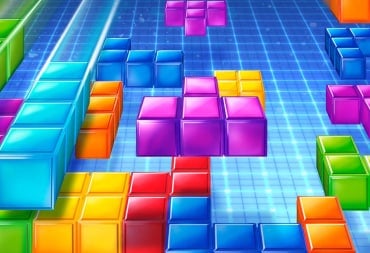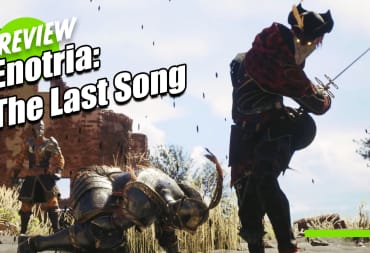Last time I checked out Enotria: The Last Song at PAX West, the preview demo showed off verdant, lush fields and bright, carnival colors reminiscent of Italy. There was a simple pleasure in exploring the space, in terms of aesthetics and soulslike gameplay.
At Summer Game Fest Play Days, Jyamma Games came back with vengeance, offering a boss rush demo that absolutely demolished me.
I didn't lose the will to keep trying, but I definitely felt like I was thrown into the deep end. There's a lot of mechanics layered on top of what you'd typically expect for a soulslike, and as with any unique element system, there's a learning curve that one hour of show floor play time doesn't quite lend itself to.
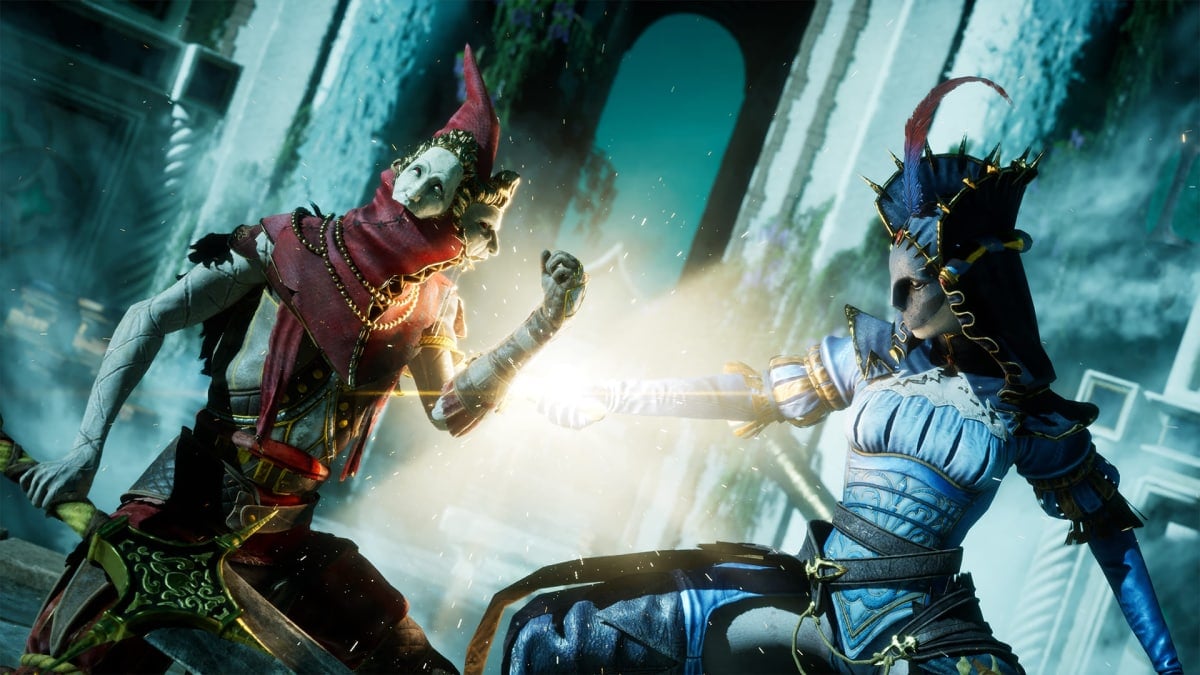
Aside from its gorgeous aesthetic, two main aspects stick out to me that set Enotria apart from its usual counterparts: masks and the aforementioned element system.
Masking Up Is Vital in Enotria
At any point, I could switch between three masks, which are essentially classes of their own. I had my base stats, but each mask augments those stats to fit a certain mold, along with completely changing my loadout.
For example, the first mask focused on physical damage, with a light and heavy sword. The second mask featured that same light sword along with a one-handed hammer, and it focused on a specific element called gratia, which looks kind of like a holy light.
Each mask also comes with special passives you can slot in, so you can create fairly unique builds that keep you versatile and ready for any situation.
Since the PAX West demo, Jyamma has sped up the time it takes to swap masks, opening the door more for mid-combat experimentation. If one build isn't working or if it's the perfect time for another build, swapping only took half a second.
However, I was a little overwhelmed diving into three fully kitted builds, but I imagine in the real game, ramping up to the three will feel more natural and be easier to absorb.
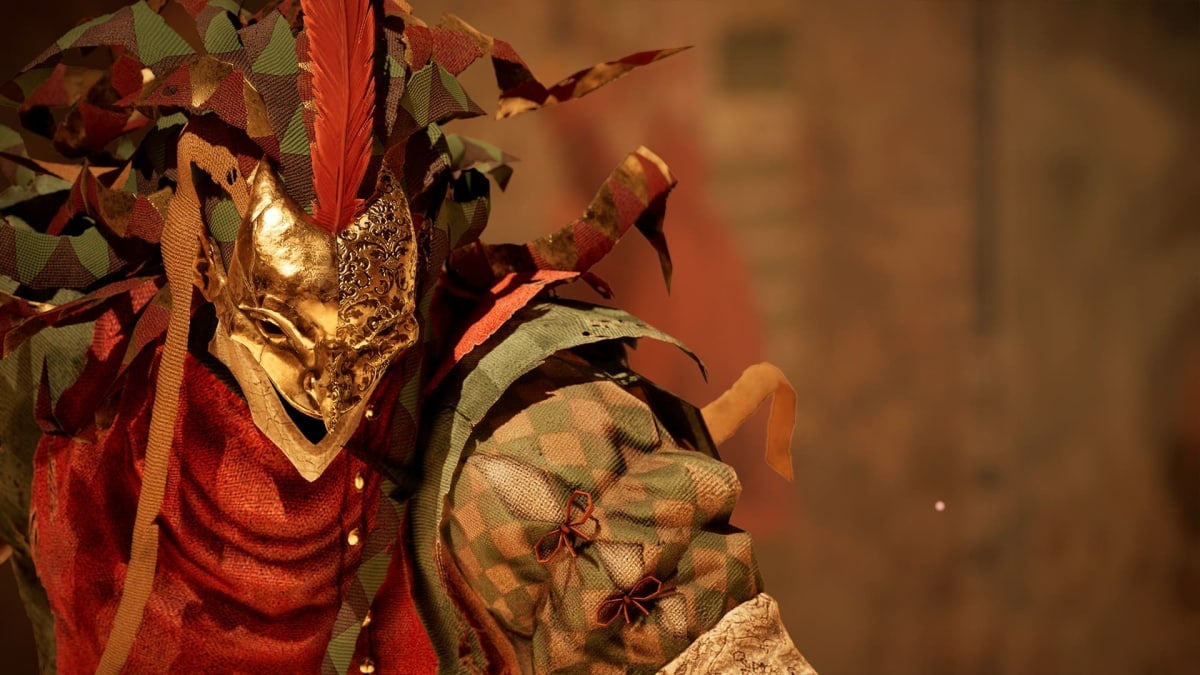
In Your Element
Another aspect of the game that took some getting used to was the element system. Enotria features four elements that aren’t easy to ascribe to common things like fire or water.
Instead, you have vis, fatuo, gratia, and malanno. These four elements correspond with four status effects: dizzy, wicked, radiant, and sick.
Gratia, like mentioned above, looks a lot like holy energy, and malanno acts similar to poison. Still, it reminded me a lot of when I was first learning the elemental language of the Persona series; it’ll take me more than an hour to internalize and understand these elements.
To add onto that, you can get affected by these four status ailments, which is both good and bad. There are upsides to being infected by these elements, which are also augmented by your mask, gems, and passives.
When the developer fought a boss in front of me, he was being healed from something that would normally damage me, all while he was affected by the wicked status effect. I really couldn’t follow it all in the moment, but the possibility of understanding all this and building explicitly around it could be very interesting.
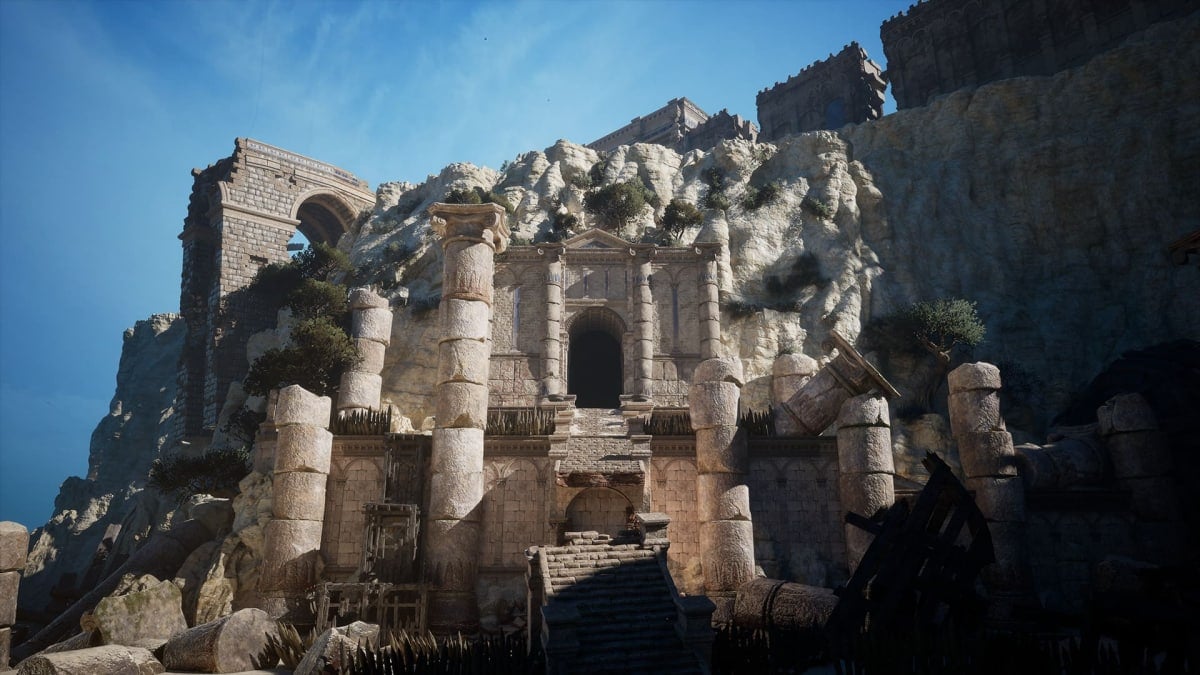
Despite finding Enotria much more difficult than when I last played it, I’m still eager to see more from Jyamma’s upcoming title. I think when I’m able to ramp up to the mid- and late-game stages, it’ll all click a lot more.
Above all, if it showcases more beautiful moments inspired by Italian folklore and culture, I’m on board with seeing where the game could go from here. I’m excited to find out as we get closer to its release on Sept. 16.
Enotria: The Last Song was previewed at Summer Game Fest Play Days courtesy of Jyamma Games.
Previews you can trust: To ensure you're getting a fair, accurate, and informed review, our experienced team spends a significant amount of time on everything we preview. Read more about how we review games and products.
Have a tip, or want to point out something we missed? Leave a Comment or e-mail us at tips@techraptor.net
